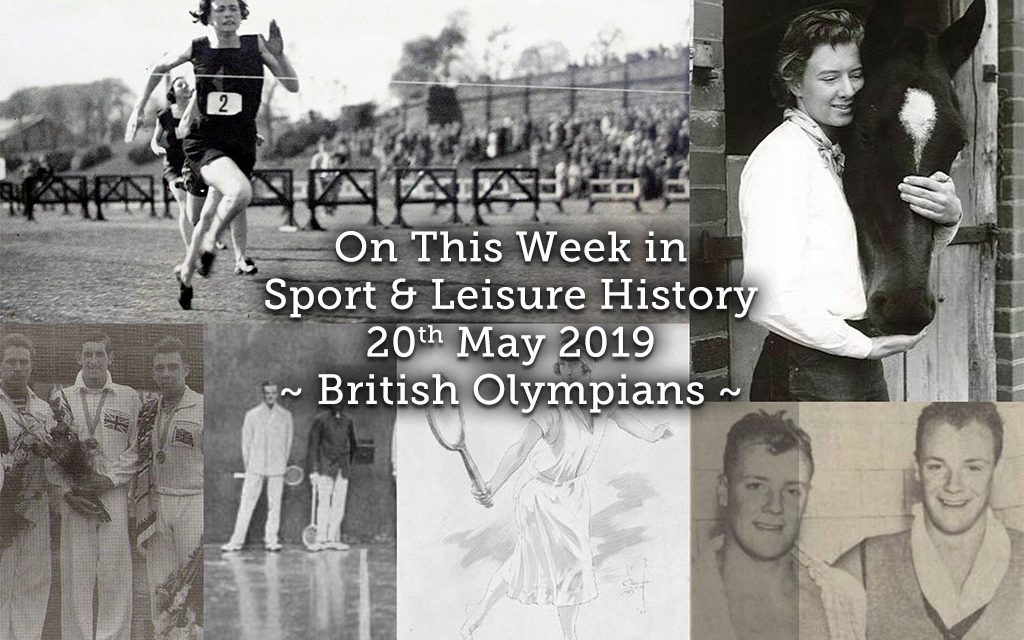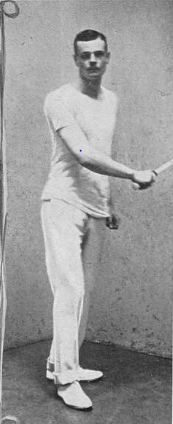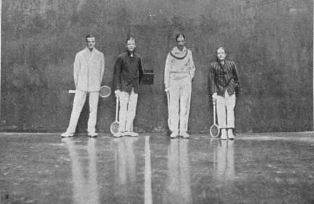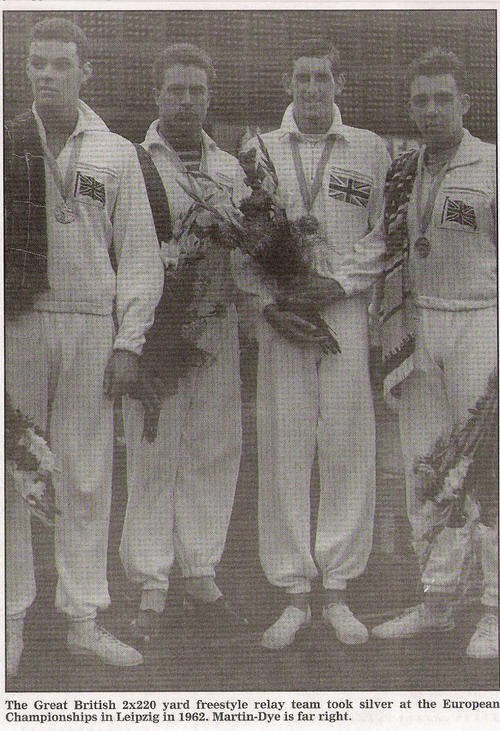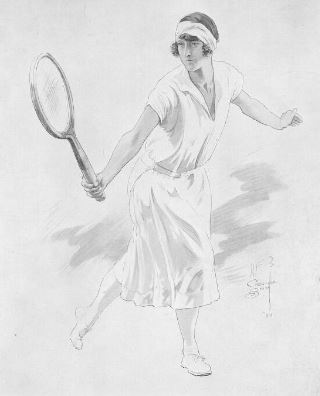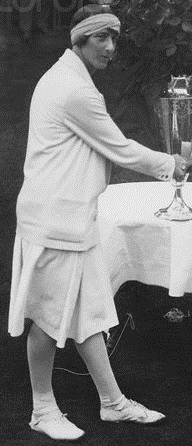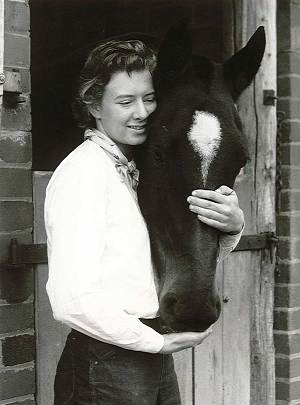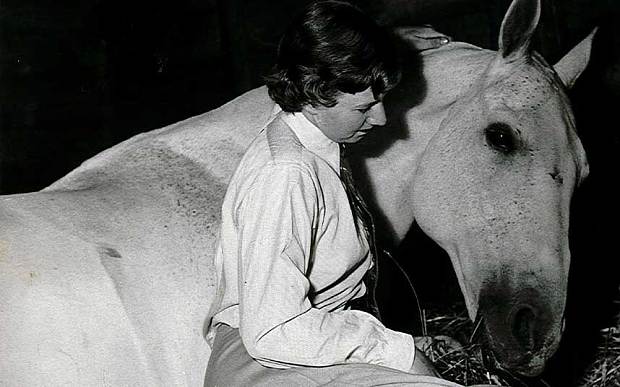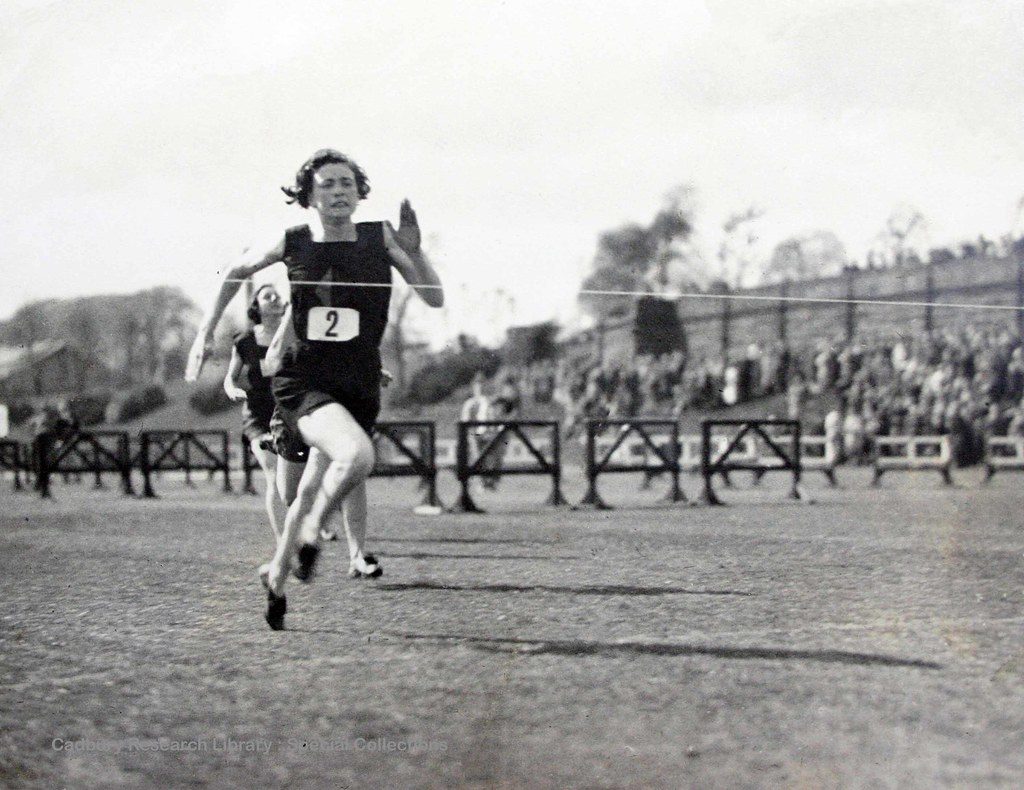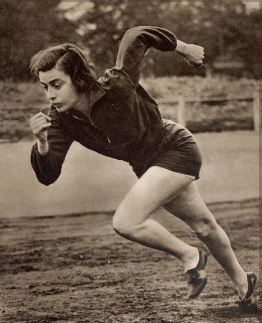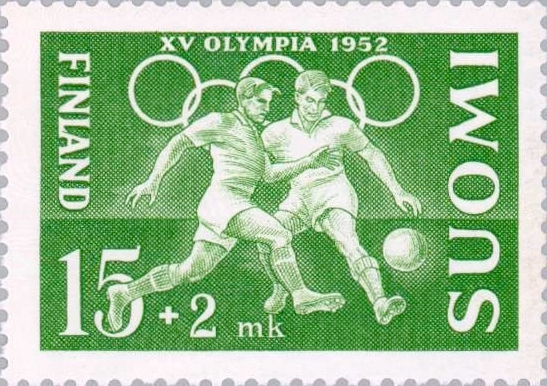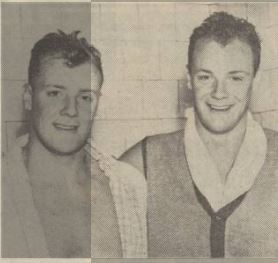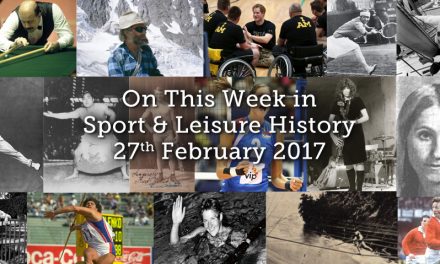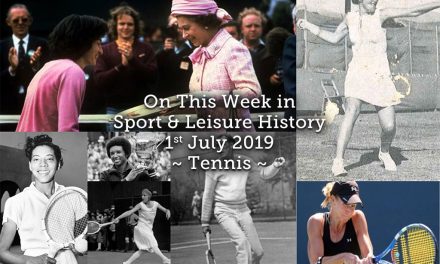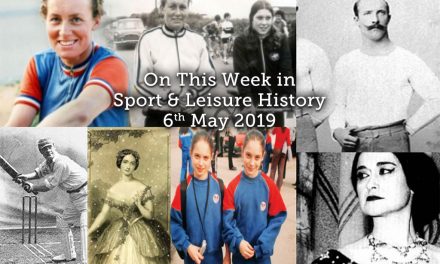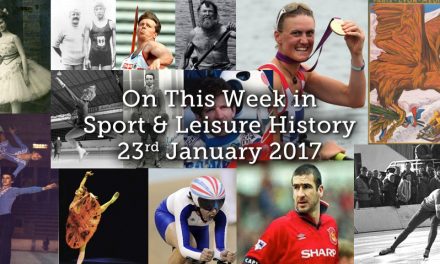20th
Born in America in 1886, John Jacob Astor came to England as a 5 year old child and became a British citizen in 1889 when his father took out naturalization papers for himself and his family. His upbringing was typical of a wealthy young Englishman of the time and at Eton he opened the batting for the cricket team in 1904 and 1905. Later in 1905 he went to New College, Oxford but his stay was brief and he left the following year to take a commission in the Life Guards. In the 1908 Olympic racquets tournament, Astor and his partner Vane Pennell scored a comfortable win over Edmund Bury and Cecil Browning in the doubles, winning the gold medal. In the singles Astor drew a bye in the fist round, his second round opponent withdrew and, although he lost to [Charles Leaf] in the only singles match he played, Astor won a bronze medal as a losing semi-finalist. From 1911 to 1914, Astor served as Aide-de-Camp to Baron Hardinge, Viceroy of India between 1911 and 1914, within his regiment he was promoted Captain in 1913 and Major in 1920. Although he lost his right leg in action in September 1918, amazingly, this did not prevent him from winning the parliamentary squash rackets championship in 1926 and 1927. In 1922, Astor became Chief Proprietor of The Times and also entered Parliament as the Member for Dover, a seat he held until 1945. In 1924 he was President of the Royal Cinque Ports Golf Club and in 1937 became the first American-born President of the MCC. In 1956 he was created Baron Astor of Hever but six years later, in order to avoid the penal death duties in England, he took up residence in France where he subsequently died on 19 July 1971.
- Astor [on left] with the rest of the finalists in the 1908 Military Racquets Championships
21st
Swimmer John Martin-Dye born 21 on this day in 1940, in Willesden, London and began swimming in 1948 at a club in Shepherd’s Bush. He won a silver medal in the 4×100m freestyle relay at the 1962 European Aquatics Championships. He competed in four freestyle events at the 1960 and 1964 Olympics; his best achievements were a fourth place finish in the 4×200m relay in 1960 and seventh in the 4×100m relay in 1964. The fourth place in 1960 was good enough for a new European record. It was at the National Championships in 1961 that Martin-Dye really made a name for himself. After winning the 400m on the Tuesday, and the 200m in a televised final on the Friday, Martin-Dye completed a remarkable treble by taking the 400m 24 hours later – a an achievement which remains unmatched to this day. He was not only a swimmer, but also competed for Great Britain in water polo. Around 1966 he moved to Watford where he coached the local water polo team. His youngest son Graham is also a swimmer and water polo player; he competed in Australia,but in 2012 was a captain of the Watford polo team.
22nd
Born today in 1895 Phyllis Howkins (later Howkins-Covell) was the daughter of a wealthy Berkshire flour miller. She made her Wimbledon debut in 1920 and a year later reached the mixed doubles final with Max Woosnam but lost 3-6, 1-6 to Randolph Lycett Great Britain and Elizabeth Ryan USA. She also enjoyed her best performance in the singles that year, losing to fellow Briton Phyllis Satterthwaite in the quarter-final. Phyllis married Beverley Covell in India in 1921 and that year the Championships of Cannes, following this up at Wimbledon, eventually losing the mixed-doubles final with her partner Maxwell Woosnam. In 1923 she won her only Grand Slam title, the women’s doubles, with Kitty McKane, defeating the American pair of Hazel Hotchkiss Wightman and Eleanor Goss in three sets. Also in 1923 she appeared in the first Wightman Cup match against the United States and was a member of the first winning British team a year later when she won her two singles, against Helen Wills and Molla Mallory and, with Dorothy Shepherd-Barron, won the doubles as Great Britain won 6-1. She was the playing captain of the side in 1929. She is probably best remembered for her silver medal at the Paris Olympics of 1924 in the women’s doubles event, again partnering with Kitty McKane. Covell was runner-up at Wimbledon in 1924, again with McKane, and in 1929 was runner-up in three Grand Slam events – the ladies doubles with Dorothy Shepherd-Barron at the US Open and at Wimbledon, and in the mixed doubles at the US championships with Bunny Austin. She won the silver medal in doubles at the 1924 Olympics with Kitty McKane after a valiant effort in pushing the Americans Wightman and Wills before losing the final 7-5, 8-6. She died in Heyshott, West Sussex on 28 October 1982 aged 87.
23rd
Dawn Palethorpe Wofford, born in Kidderminster on 23 May 1936 and died aged 79 on 12 July 2015. She was one of Britain’s most successful international riders of the 1950s and early- 1960s, an era in which, with Pat Smythe, she dominated women’s showjumping. Highlights of her showjumping career (in the early years of which she was known by her maiden name, Dawn Palethorpe) included twice winning the Queen Elizabeth II Cup, taking silver in the Ladies European Championships, team gold in the Nations Cup and representing Great Britain at the 1960 Rome Olympics. She went on to become the first female chairman of the Pony Club, renowned for her indomitable spirit and kindness. Dawn was the second daughter of Captain Jack and Valerie Palethorpe. Jack Palethorpe, a member of the sausages and pies dynasty founded by his grandfather in 1852, had been a First World War flying ace and loved polo and hunting. An ingenious engineer, he invented a machine for wrapping pork pies, which remained unsurpassed for 40 years. Dawn idolised him, inheriting his practical gifts and love of speed and sport. Dawn learned to ride a pony before she could walk. She was also a fine swimmer and tennis player, thanks largely to the spacious family home having a tennis court and indoor swimming pool. Her father was a keen all-round sportsman who enjoyed the winter sports of ice hockey and skiing, and was also a keen yachtsman, polo player and hunter. Dawn joined the Pony Club when she was two and at 15 was runner-up at the Leading Junior Show Jumper of the Year event in 1951. She switched from ponies to horses in 1953 and the following year was the Ladies National champion and was also the leading Showjumper of the Year on Holywell Surprise. Her next horse was to be Earlsrath Rambler and so was born one of the great partnerships of British show jumping. The pair won the Queen Elizabeth II Cup at the Royal International Horse Show in both 1955 and 1956. They also won the puissance at Aachen in 1955 and the following year were reserves for the British team at the Stockholm Olympics which is where she met her future husband Warren Wofford, the son of Colonel John Wofford, the first president of the US equestrian team. Warren and Dawn married the following year. After Earlsrath Rambler retired her next horse was her husband’s former horse Hollandia and they represented Britain at the Rome Olympics and won a silver medal at the European Women’s Championships at Copenhagen a few months before the Games. Shortly afterward the Olympics she retired from competitive jumping to raise her family. She remained involved with the Pony Club and was in 1991 appointed its first female chairman. In 1992 she re-wrote the Pony Clubs Bible- Manual of Horsemanship, which was quite an achievement for somebody who struggled to read and write at school because of dyslexia. She trained as a music teacher and had a love of music and opera. She was also a clever bridge player and expert shot, and after Warren’s death in 1997 she took up hunting again in her sixties. Dawn’s sister Jill was also a show jumper and like Dawn, won the Queen Elizabeth II Cup (then the Princess Elizabeth Cup) as a 17-year-old in 1950.
24th
Sprinter Audrey Brown (later Court), was born today in 1913 in Bankura, India. She mainly competed at 100m and was the sister of Godfrey Brown, the youngest member of the British 4x400m relay team at the 1936 Olympics and Ralph Kilner Brown, the 440yds hurdles champion, who won bronze at that event at the 1934 Empire Games. Audrey started to become interested in athletics while at university in Birmingham. becoming the British University 220yds champion in 1936. She competed at the 1936 Olympics, winning silver in the sprint relay with team mates; Eileen Hiscock, Violet Olney and Barbara Burke, but not progressing to the final rounds of the 100m. The following year she won 200m silver at the International Student Games in Paris. A member of Birchfield Harriers, Audrey was awarded the captaincy of the British women’s team at the European Women’s Championships in Vienna in 1938. She was an employee of Rowntree’s Cocoa Works in York and devoted a good deal of her time to industrial welfare work. She died at the age of 92 in Manchester on 11 June 2005.
25th
A 16-time England amateur international, Charlie Fuller was born on this day in 1919 and played football for Dagenham Boys before the family moved to Plumstead when he was 16. He went to Grafton School and sat next to the marathon runner Jim Peters, who turned out to be a fellow Olympian. A powerful centre-half Charlie was introduced to Erith & Belvedere by his father, who played for the club in the 1920s, and made his debut the month before his 18th birthday. Charlie was an ever-present in Erith & Belvedere’s 13-match run to the 1938 FA Amateur Cup final which they lost to Bromley. At the time Charlie was a month away from his 19th birthday. He played around 100 games for the Deres before joining Walthamstow Avenue in the summer of 1938. He served in the Royal Artillery during the war and after the hostilities joined Bromley and captained them to victory over Romford in front of 95,000 fans in the first FA Amateur Cup final at Wembley in 1949 his brother Tommy played in the same team. He turned down offers to turn professional, including one from an Italian, and consequently was honoured to captain the Great Britain side at the 1952 Olympics. Sadly, Britain were beaten in a qualifying match by Luxembourg three days before the opening ceremony. After the Games he returned to Erith & Belvedere as player-manager and was joined by brother Tommy. Charles Fuller’s playing career came to an end after twisting a knee in match against Grays in 1954, but he continued as manager until 1956 when he was replaced after a poor start to the season. Charlie later became landlord of the Duke of Wellington at Ryarsh in North Kent and after a couple of other moves he ended up in Sheppey where he died. A fearless and powerful header of the ball, the onset of Alzheimers later in life may have been as a result of that talent he had on the football field. He died aged 85 on 16 November 2004.
26th
The Wardrop twin brothers Jack and Bert were born on this day in 1932 and learned to swim at the Motherwell Baths. Jack won silver and bronze at the 1954 Empire Games in Vancover as well as competing at the 1948, 1952 and 1956 Olympics, where his best performance came in the from of a 5th place 400m freestyle in the 1952 Games. Bert was 3rd in the 1954 British Empire and Commonwealth Games Medley Relay, with brother Jack and John Service, he also finished fifth in the 1954 British Empire and Commonwealth Games 110 yards backstroke and was eliminated in the heats of the 440yds freestyle. In the 1952 Olympics he was 6th in the 100m backstroke. The brothers attended the University of Michigan, swimming for the Michigan Wolverines swimming and diving team in National Collegiate Athletic Association (NCAA) and Big Ten Conference competition from 1953 to 1955, where Jack won NCAA national championships in the 220yds freestyle in 1954 and 1955.
- Wardrop Brothers

